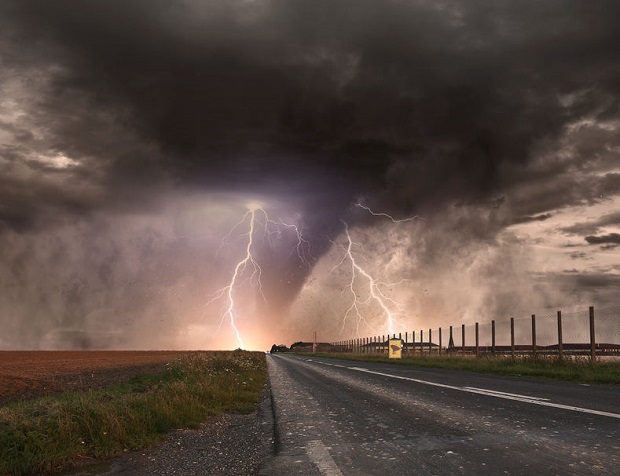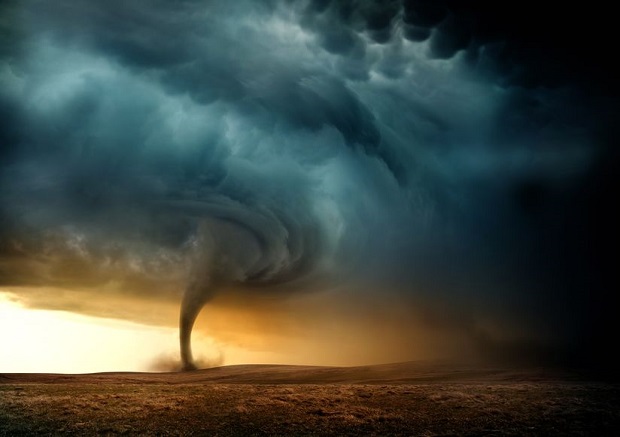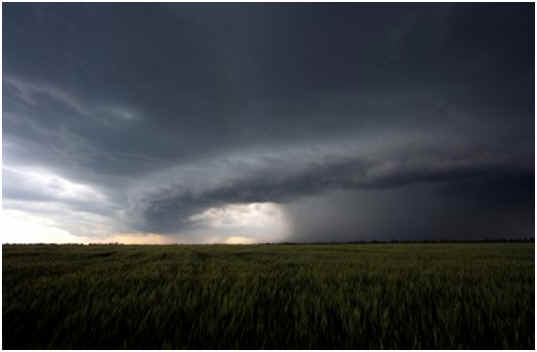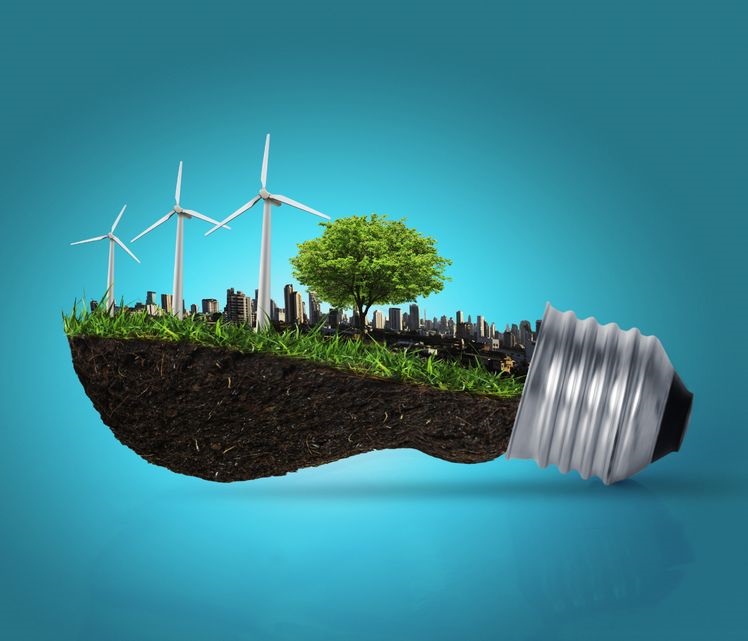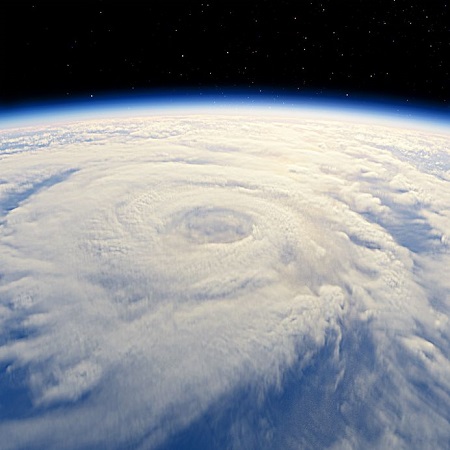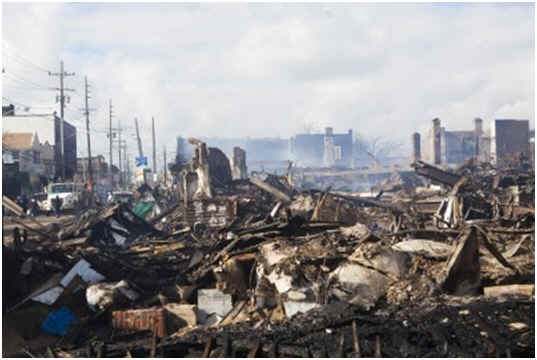
Why Do Hurricanes Weaken Over Land?
Hurricanes weaken when they pass over land because they lose access to the excessive heat and moisture collected from the ocean required to fuel them.
How Hurricanes Form
With all the destruction that hurricanes have caused, it is difficult to fathom that these powerful storms actually weaken over land.
Hurricanes and other tropical storm systems derive their strength from the warm tropical waters over which they form. During the summer months, ocean water near the equator collects and stores heat from the sun. *(See note) The heat and moisture rising from the ocean surface feed into small areas of thunderstorm activity that are constantly present over tropical waters. If the conditions are just right, the storm system will become more organized and a tropical depression will form. If a tropical depression remains over warm waters and is not diminished by another storm system or sheared apart by upper-level winds, it can strengthen into a tropical storm or hurricane.
Hurricane Landfall
Land surfaces also collect heat from the sun, but they do not retain heat as well as water. Land surfaces also release less moisture into the atmosphere. Heat energy and moisture are the main fuel sources for tropical systems. Therefore, when a hurricane or other tropical system moves over land, it is cut off from the warm water and moisture that fuels its strength. Friction with the land surface does little to contribute to the weakening of a landfalling hurricane. The storm’s energy dissipates rapidly as it moves further away from warm ocean waters. However, if a hurricane or tropical system weakens over land and then moves back out over warm water again, it may regain strength.
* Hurricanes do not develop within at least 300 miles or roughly five degrees latitude from the equator.
Resources
NASA
How Do Hurricanes Form?
http://spaceplace.nasa.gov/hurricanes/
Department of Geosciences San Francisco State University
Hurricane Questions
http://tornado.sfsu.edu/geosciences/classes/m302/hurricanequestions.html]
Atlantic Oceanographic & Meteorological Laboratory
Doesn’t the Friction Over Land Kill Cyclones?
http://www.aoml.noaa.gov/hrd/tcfaq/C2.html
University Corporation for Atmospheric Research
Hurricanes and Tropical Cyclones Life Cycles
http://www.ucar.edu/news/features/hurricanes/htc_t3.htm
University of Hawaii School of Ocean and Earth Science and Technology
Ask an Earth Scientist: Hurricanes and the Equator
http://www.soest.hawaii.edu/GG/ASK/hurricanes.html

